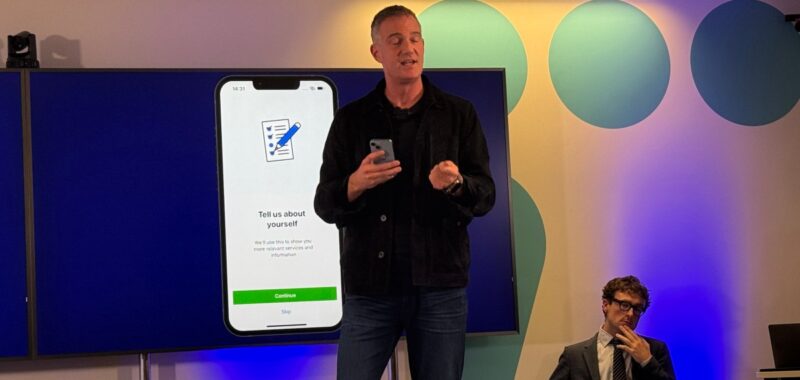Alongside its big public push for AI investments, the U.K. government is also playing virtual card to catapult itself into the 21st century. Today it announced plans to launch a secure digital wallet to manage government-issued credentials, alongside a chatbot — built in collaboration with OpenAI — to interact with the main GOV.UK portal. Today, it dubbed the chatbot ‘chat-uk’ and said it will be a part of a wider portal and app.
The first two cards it plans to add to its wallet will be a virtual drivers’ license, and a virtual veteran card for people who have served in the military. It plans to launch the service later this year, it said in a press conference today. The GOV.UK portal will be online in 2025, but it has already started testing the chat service and it’s also already opening up for ordinary users to test it, said Peter Kyle, the U.K.’s secretary of state for technology — even if some of responses a little odd.
“It is really important the public start to understand that increasingly, in an online world, and government is moving to an online world, that we will interact at an earlier stage, so that we can use the power, the insight and the volume of interactions that the public can provide in testing,” Kyle said in a press conference today in London. “So yes, the chat system did start talking French midway through a testing series, but it was a mistake we learned from.”
The developments come at a crossroads for AI advances.
On one hand, the Labour government has doubled down on the idea of building out an AI economy in the country. Partnerships with private AI companies to invest more in their operations here, more infrastructure such as data centres and a supercomputer to support AI services, and a big commitment from the government to invest in AI services itself. First up, today it unveiled a raft of new AI tools, all still in development: a multi-functional AI assistant for government employees called “Humphrey”; a push to build more consumer-facing AI tools; and more data sharing between government departments to help them build and run AI services.
On the other hand, there remain many questions about how AI services will work in the years ahead. It was only a year ago that the U.K. took a leading role only a year ago in a wider global conversation about AI safety: how the new wave of services being built by companies like OpenAI, Anthropic, Mistral and many others will impact jobs, user privacy and data protection, copyright, and how AI might get misused for nefarious purposes such as to create misinformation, in aid of malicious hacking, and more.
A push for more digital services in the U.K. comes at the same time as the U.S. is also doubling down on the role tech will be playing in that country. Yesterday, President Trump, on his first day in office, made official his new government “efficiency” effort, dubbed DOGE and led by technology entrepreneur Elon Musk.Trump also repealed an executive order from his predecessor President Joe Biden that sought to reduce AI risks to government, consumers and businesses. That means that setting up and running safety tests around AI systems are no longer required.
The government said that its new GOV.UK Wallet will allow users to securely store government-issued documents on their phone and use them easily when needed, it said. This could be more convenient when, say, you are on the move and you want to only have a phone and no physical wallet. “The technology will make use of security features that are built into modern smart phones, including facial recognition checks similar to those used when people pay using a digital bank card,” it said. “It means that digital documents will be more secure, even if a device is lost.”

